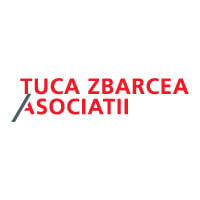

Legal and corporate governance manager | Salt Bank



Simona Caraghiaur
Legal and corporate governance manager | Salt Bank
How do you approach managing legal aspects during periods of instability or crises, and how does your legal strategy align with the broader business strategy to ensure the organisation’s resilience?
Periods of instability, crises, and the emergence of disruptive technologies all represent inflection points that offer unique opportunities to innovate, grow, and strengthen an organisation’s foundations. From my perspective, managing legal aspects during these times is about more than mitigating risks—it’s about identifying opportunities and enabling the organisation to adapt and thrive.
At the heart of this process is building trust. Trust between the legal function, management, and the broader organisation is the cornerstone of effective collaboration and resilience. This trust is cultivated through consistent, high-quality legal support, open communication, and continuous learning fueled by a genuine curiosity about the business and its challenges.
With this trust in place, I approach legal strategy as an enabler of opportunity and growth. This means developing solutions that not only address risks and meet regulatory requirements but are also deeply aligned with the organisation’s strategic vision and operational priorities. Legal frameworks should reflect the organisation’s DNA, supporting its resilience and agility during periods of change.
By embracing innovation and maintaining a proactive, flexible approach, the legal function plays a critical role in helping organisations navigate disruption, whether due to crises or technological advancements. This ensures that the organisation is prepared to seize opportunities rather than simply reacting to challenges, reinforcing both ethical integrity and strategic adaptability.
What emerging technologies do you see as having the most significant impact on the legal profession in the near future, and how do you stay updated on these developments?
Emerging technologies such as artificial intelligence (AI), blockchain, and advanced data analytics are poised to significantly reshape the legal profession. AI is already transforming processes like legal research, contract analysis, and compliance monitoring, increasing efficiency and unlocking new possibilities for risk assessment, dispute resolution, and predictive legal strategies. Blockchain introduces opportunities for transparency and trust through smart contracts and secure digital transactions, while advanced data analytics enables deeper insights that drive better decision-making.
Staying updated on these developments requires a proactive, intentional approach. I encourage and support my team in dedicating time to studying industry reports, attending conferences, and participating in professional networks focused on legal technology. Additionally, open dialogues with experts in both the legal and technology sectors allow us to gain diverse perspectives and insights into how these advancements are shaping the profession.
Through my involvement in projects like Salt Bank, I have observed that successful digital transformation depends not only on technology itself but also on the human factor—our ability to learn, adapt, and apply these advancements responsibly. This human element remains critical in ensuring that technology enhances, rather than overshadows, the core principles of law.
By staying at the forefront of technological developments, legal professionals can focus more intentionally on their core purpose: addressing fundamental legal principles, fostering human connections, and safeguarding the social contracts that underpin every aspect of law. Technology streamlines processes and manages routine complexities, allowing practitioners to dedicate their energy to the deeper, human aspects of law, which remains, at its essence, a social science.
Legal and corporate governance manager | Salt Bank